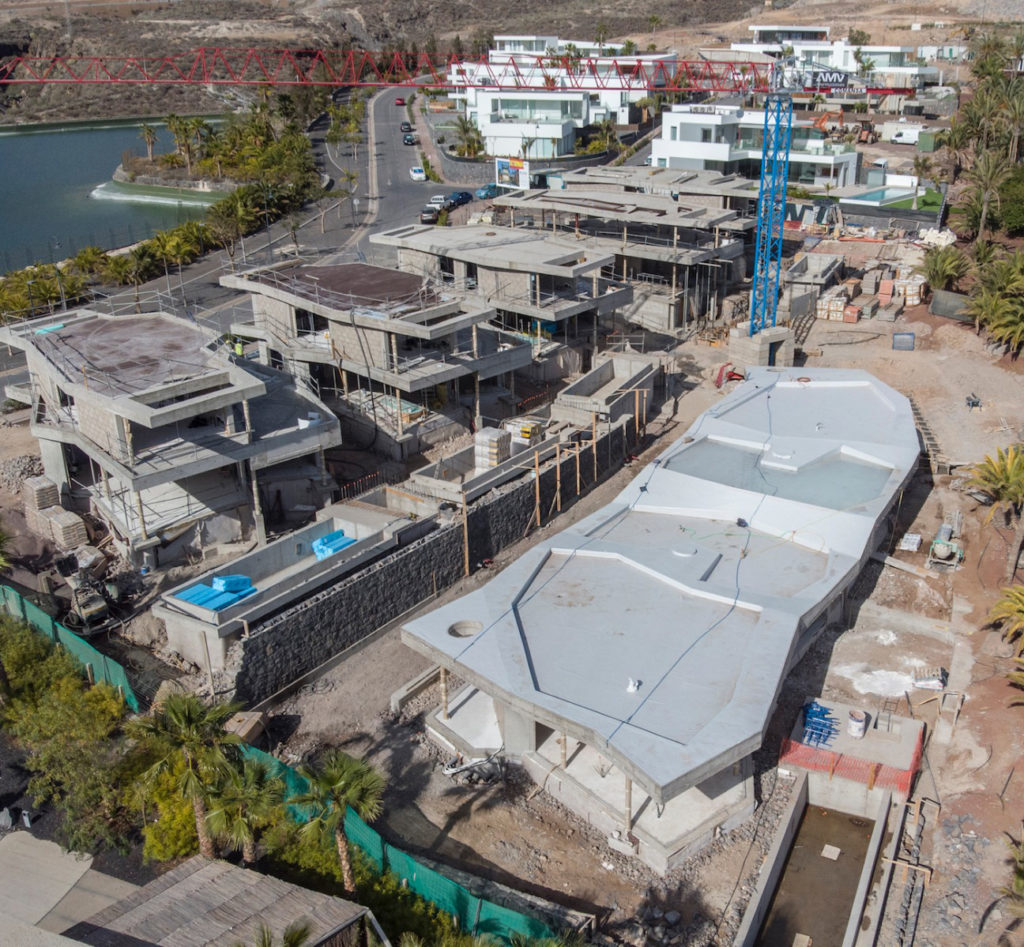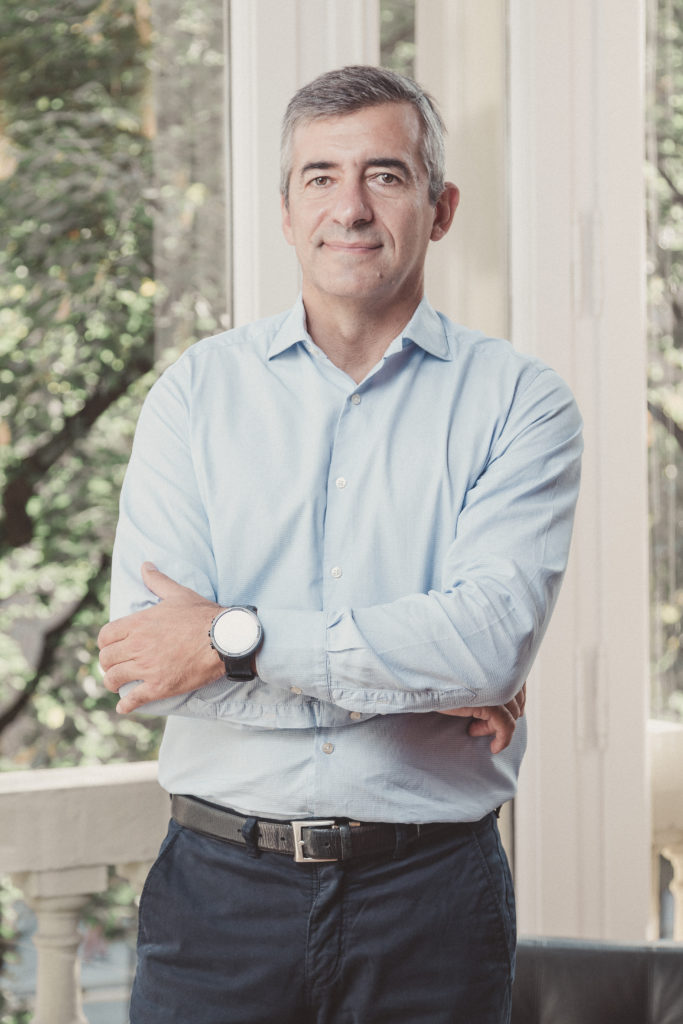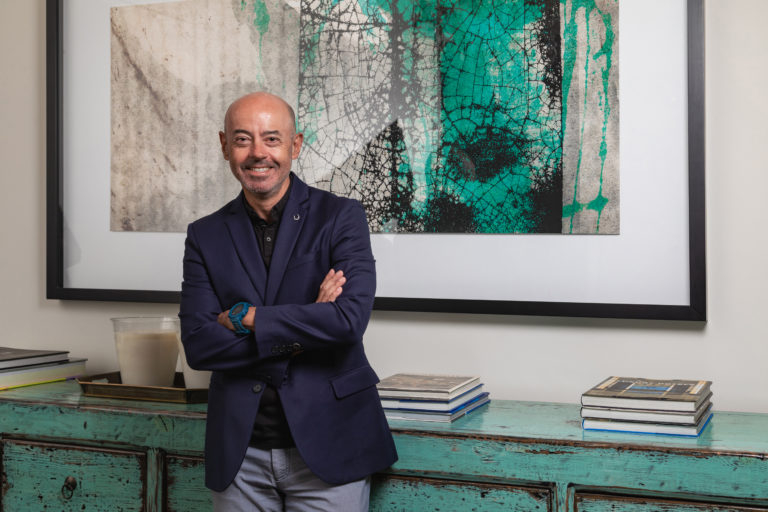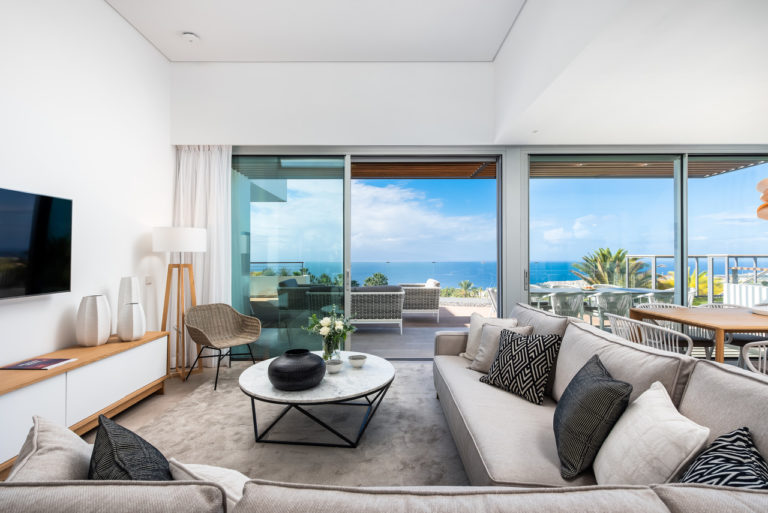Resilience in the construction of large-scale real estate projects is consolidated after the impact of the pandemic and the war in Ukraine

The conflict between Ukraine and Russia emerged just at the point that the real estate sector was beginning to see the light after the brutal paralysis brought on by the pandemic. Arum Group, a company that develops residential projects in Tenerife and Murcia, explains how knowledge of the international market and agility in making alternative choices have allowed it to respond successfully to the sudden interruption of supplies that the construction sector has experienced.
The Real Estate Director is a fundamental figure in the development of any real estate initiative. This person is responsible for coordinating the entire construction process, the relationship with suppliers and the urban, environmental and aesthetic planning. He or she is also in charge of enforcing the parameters and standards of construction and developing the conditions for contracts.
Now, in a construction sector shaken by the changing environment emerging from the geopolitical conflict between Ukraine and Russia, the importance of the real estate development team has been further enhanced by demonstrating its key role in adapting a project to a volatile context and coping successfully. Arum Group, a company specialized in the development of luxury projects like tourism and residential destinations (including residences, hotels, sport facilities like golf and tennis, and commercial centers, etc.), has a real estate and projects department that not only executes the real estate planning desired by the investor, mobilizing necessary resources and supervising the project evolution, but, in times of crisis, includes a team dedicated to the early identification of risks.
In practice, this means that the usual tasks and duties of any development company have now been expanded to include ensuring deadlines and plans are met correctly, the necessary materials are available, and the standards of quality the client is expecting are reached. “The companies that survive these two crises and emerge more mature and solvent are the ones that will be in demand by future investors,” according to Arum.

At Arum, “We apply modern ways of working based on the agile methodology,” explains Francesc Pujol, Director of Real Estate at Arum Group. “Promoters must now include the mitigation, analysis and resolution of conflict situations among their functions.” Project Management is not only responsible for construction, but also for managing the investor accounts, dialogues with different suppliers, and the relationships with relevant local government bodies. In short, according to Pujol, its role can be summed up in three concepts: “mediation, efficiency, and results.”
Any process that involves relationships with people has to have proper emotional management and adapt to changes. This is vital to accept in the development and execution of real estate projects. Arum uses advanced technologies, including all the tools and integrations required for marketing, sales, content management, customer service, and operations. “Our role is also to apply continuous improvements, eliminate downtime, and provide our teams with tools that facilitate their work and automate tasks so processes are more efficient.” These are things that are “not seen, but are fundamental throughout the process for meeting expectations and deadlines.”
Technological innovation is crucial in this sense, points out Francesc Pujol. And not only in the processes themselves, but also when it comes to visualizing a product “that is often sold off-plan and that the buyer has to imagine. The quality of the architectural models, renders, images and virtual reality materials is very important to the architectural and interior design project, and also to the urban planning. There has to be harmony in our representations. In our projects, the topographical treatment is vital, making our projects living entities that can be represented in artistic and original ways at different scales as a resort grows.”
How Arum Group has dealt with the energy and supply crises
Unpredictable variables have recently revolutionized the market. The COVID pandemic and the conflict in Ukraine, with its great global impact, have forced the construction sector to seek creative alternatives. The rise in energy prices, which particularly affects the production of cement and ceramics, and the rebound in the price of aluminum have been factors that have triggered construction price increases and caused shortages for the first time in years.
“We have had major issues with supply and prices that fluctuated from one week to the next at first,” explains Francesc Pujol. However, he adds, extensive knowledge of international politics and how changes could affect them allowed Arum to react in time. “Our international PRs sent reports to the marketing department of what was coming. So we worked with the contractors to get our orders in early and in some cases we had to substitute materials. The materials most affected have been aluminum and the electronics that derive from the production of silicon chips, essential in almost any automatic device in a real estate project, like garages, blinds, and electrical appliances. China’s reliance on silicon in the technological development of these chips has been the cause,” he stresses.
90% of aluminum is manufactured in Russia and after war was declared, says the Real Estate Director of Arum Group, “We quickly decided to replace aluminum in several residential projects in Tenerife and Murcia with high-quality wood. Our main aluminum suppliers have intermittently had to stop manufacturing structures due to energy prices, and there was not enough stock on the market. Ceramics have also been affected, not because of the material itself, but because of the kiln treatment process, which was also frozen by the high costs of electricity (in this case, energy expenditure represents a third of the cost). We have taken all these variables into account, placing large-scale orders almost before the conflict arose, so that the quality and delivery time of our properties would not be affected.” Pujol adds that such a volatile construction market has been especially hard on many small and medium-sized companies. “Without the proper infrastructure and a team like ours, they have not been able to respond to this uncertainty.” In this sense, he emphasizes, “the consulting role of a company like ours is crucial, at the moment, in the management of these types of quickly changing situations.”



